WhatsApp Cloud API
The WhatsApp Cloud API is a powerful tool that enables developers to integrate WhatsApp messaging capabilities into their applications and systems, leveraging the cloud infrastructure for communication. With this API, developers can programmatically send and receive messages, media files, and other content through WhatsApp, opening up a wide range of possibilities for enhancing user engagement, customer support, and business communication. Here's a closer look at the features and benefits of the WhatsApp Cloud API:
Messaging Automation:
The WhatsApp Cloud API allows developers to automate messaging workflows by sending personalized messages, notifications, and alerts to users based on predefined triggers or events. This automation can streamline communication processes, improve response times, and enhance user engagement.
Two-Way Communication:
With the WhatsApp Cloud API, developers can enable two-way communication between their applications and users, allowing users to initiate conversations, respond to messages, and interact with automated bots or customer support representatives in real-time. This fosters more meaningful and interactive communication experiences.
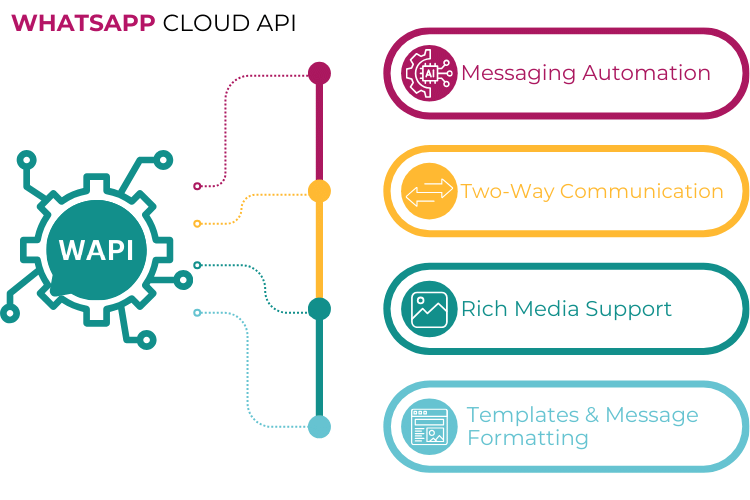
Rich Media Support:
The WhatsApp Cloud API supports the sending and receiving of various types of media files, including images, videos, audio clips, and documents. This enables developers to create rich and engaging messaging experiences by incorporating multimedia content into their communications.
Templates and Message Formatting:
Developers can leverage message templates and formatting options provided by the WhatsApp Cloud API to create visually appealing and informative messages. This includes support for text formatting, emojis, links, and structured message templates for displaying dynamic content such as order confirmations, appointment reminders, and product recommendations.
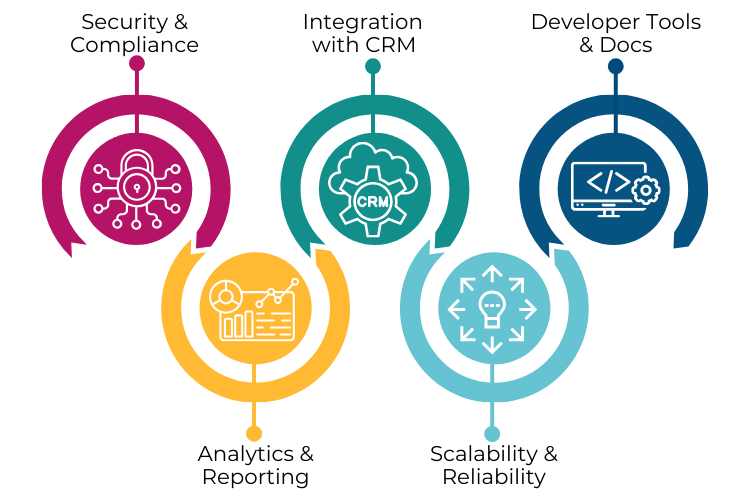
Security and Compliance:
The WhatsApp Cloud API prioritizes security and compliance by implementing robust encryption protocols and adhering to WhatsApp's policies and guidelines for data protection and privacy. This ensures that sensitive information shared through the API is secure and that developers comply with relevant regulations and standards.
Analytics and Reporting:
The WhatsApp Cloud API offers analytics and reporting capabilities that provide insights into message delivery, engagement metrics, user interactions, and other performance indicators. This data helps developers monitor the effectiveness of their messaging campaigns, identify trends, and optimize their communication strategies.
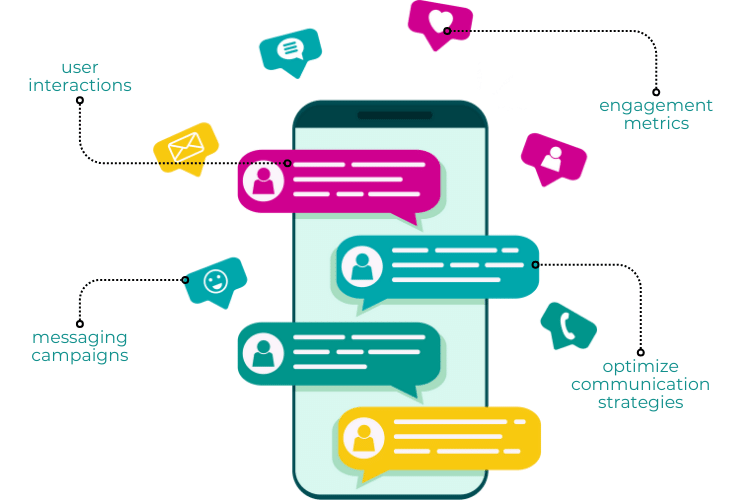
Integration with CRM and Business Systems:
Developers can integrate the WhatsApp Cloud API with customer relationship management (CRM) systems, enterprise resource planning (ERP) systems, and other business applications to enable seamless communication between users and internal teams. This integration streamlines workflows, enhances productivity, and improves customer service.
Scalability and Reliability:
The WhatsApp Cloud API is built on scalable and reliable cloud infrastructure, ensuring high availability, uptime, and performance even during periods of high message volume. This scalability allows developers to accommodate growing user bases and handle increased messaging traffic without compromising quality or reliability.
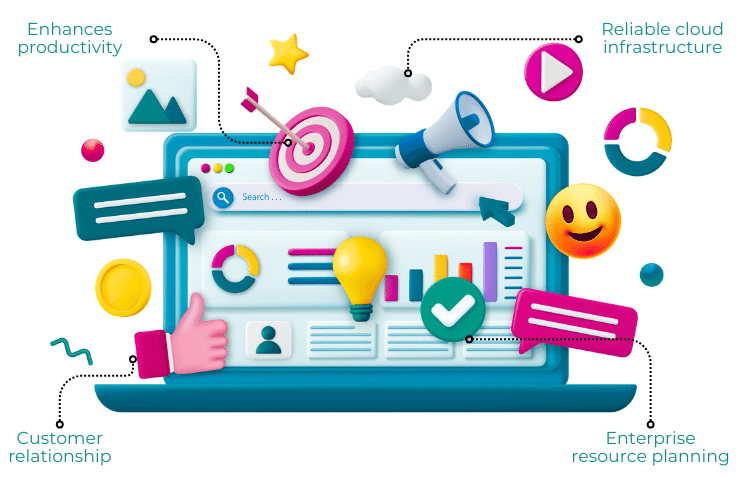
Developer Tools and Documentation:
WhatsApp provides comprehensive documentation, developer tools, SDKs (Software Development Kits), and APIs to help developers integrate the WhatsApp Cloud API into their applications quickly and efficiently. This support ecosystem simplifies the development process and enables developers to leverage the full capabilities of the API.
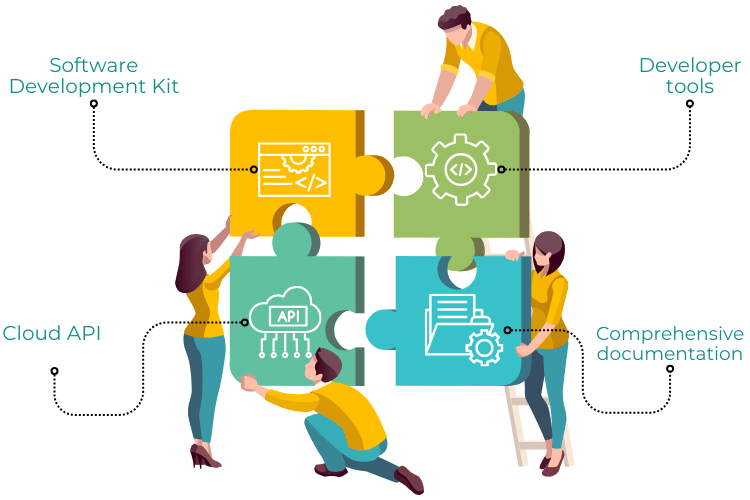
In summary, the WhatsApp Cloud API empowers developers to create innovative messaging solutions that enhance user engagement, streamline communication processes, and drive business growth. By leveraging its features and capabilities, developers can build personalized, interactive, and secure messaging experiences that meet the evolving needs of users and businesses alike.
